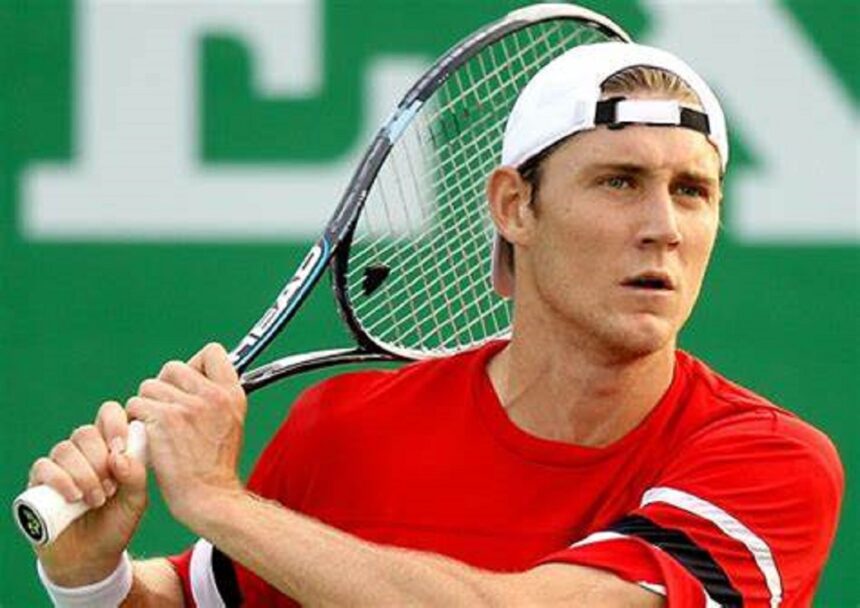When it comes to the world of tennis, few players have experienced as impressive an evolutionary journey as Matthew Ebden. From competing in small local tournaments to taking on some of the biggest names in Grand Slam events, Ebden has risen through the ranks with skill, determination and unwavering passion for the sport. In this blog post, we take a closer look at his inspiring journey so far and explore how he’s managed to make his mark on professional tennis. So grab your racket and get ready for an exhilarating ride through the career of one of Australia’s brightest stars!
Introduction to Matthew Ebden and his backstory
Matthew Ebden is an Australian professional tennis player. His career-high singles ranking is world No. 39, which he achieved in October 2018.
Ebden was born in Johannesburg, South Africa to British parents, and moved to Perth, Australia when he was two years old. He played his first competitive tennis tournament at age eight. As a junior player, he won the 2006 Orange Bowl doubles title with future US Open champion Marin Čilić.
Ebden turned professional in 2007, and won his first ATP Challenger Tour title in 2008. He reached his first ATP Tour final in 2011 at the Aegon International event in Eastbourne, United Kingdom. Ebden has represented Australia in Davis Cup competition since 2010.
In 2018, Ebden had his most successful year on tour to date. He won two ATP Challenger Tour titles and reached the quarterfinals of the Wimbledon Championships – his best result at a Grand Slam event.
Ebden’s rise from local tournaments to grand slam events
|
|||||||||||||||||||||||||||||||||||||||||||||||||||||||||||||||||||||||||||||
|---|---|---|---|---|---|---|---|---|---|---|---|---|---|---|---|---|---|---|---|---|---|---|---|---|---|---|---|---|---|---|---|---|---|---|---|---|---|---|---|---|---|---|---|---|---|---|---|---|---|---|---|---|---|---|---|---|---|---|---|---|---|---|---|---|---|---|---|---|---|---|---|---|---|---|---|---|---|
and slam events
Over the last decade, Australian tennis player Matthew Ebden has risen from local tournaments to grand slam events. In that time, he has won several titles and earned himself a spot in the world’s top 100 rankings.
Ebden first made a name for himself on the local tennis circuit in Australia. He won a number of junior tournaments and even made it to the semifinals of the Australian Open Junior Championships in 2007. From there, he began to play more professional events.
He made his Grand Slam debut at the 2010 Australian Open and reached the third round before losing to eventual champion Novak Djokovic. Over the next few years, he competed at all four of the majors and steadily improved his results. He reached the second round of Wimbledon in 2012 and 2013, and made it to the third round of the US Open in 2014.
Since then, Ebden has continued to progress as a player. In 2018, he had his best year yet, reaching the quarterfinals of Wimbledon and achieving a career-high ranking of #39 in the world. He followed that up with another strong showing at Wimbledon in 2019, reaching the fourth round before losing to eventual champion Roger Federer.
Just last month, Ebden capped off his best year yet by winning his first ATP Tour title at the Nottingham Open. With this victory, he cemented his place among Australia’s top tennis players and proved that he is capable of competing with anyone in the world
The road to success with training, financial aid, and support
If you’re thinking about taking your tennis game to the next level, there are a few things you’ll need to do to make sure you’re successful. First, you’ll need to find the right training program that can help you improve your skills and techniques. There are many great programs out there, so take some time to research different options and find one that fits your needs.
Second, you’ll need to secure financial aid to help cover the costs of your training. There are many sources of financial assistance available, so don’t be afraid to ask around or look online for scholarships and other opportunities.
You’ll need to make sure you have a support system in place to help you stay motivated and on track. This could include family and friends, teammates, or even a coach. Whatever form it takes, having people in your corner who believe in your goals will help keep you focused and moving forward.
Struggles with injuries: staying motivated and resilient
No matter what level you compete at in tennis, there will always be injuries. For professional players, these injuries can often mean the end of a tournament or even a season. This is why it’s so important for players to stay motivated and resilient in the face of injuries.
For Matthew Ebden, a professional player from Australia, his resilience was put to the test early on in his career. After winning a few local tournaments, he was sidelined with an ankle injury that kept him out of action for several months. During this time, he could have easily become discouraged and given up on his dream of becoming a professional player. Instead, he used the time away from competition to focus on his recovery and came back stronger than ever.
Ebden has since gone on to compete at the highest levels of tennis, including Grand Slam events. While he hasn’t had much success at these events yet, he continues to motivate himself by setting small goals and striving to improve each day.
It’s clear that Ebden’s resilience has been a major key to his success as a tennis player. No matter what obstacles he faces, he always finds a way to pick himself up and keep moving forward.
Training techniques used by Matthew Ebden
Matthew Ebden has been through a lot of changes in his tennis career. He has gone from playing local tournaments to competing in Grand Slam events. Along the way, he has had to adapt his training techniques to meet the demands of the higher level of competition.
Ebden typically trains for about six hours each day. He starts with a two-hour session on the court, working on his technique and tactics with his coach. This is followed by an hour of strength and conditioning work, followed by another hour of cardio. The afternoon session is usually dedicated to mental training, such as watching game film and working on visualization exercises.
Ebden has found that this intensive training schedule is necessary to keep up with the top players in the world. “The difference between playing at Challenger level and Grand Slam level is huge,” he says. “You have to be able to sustain your effort for longer periods of time and recover quicker.”
By working hard on his fitness and mental game, Ebden has been able to make the transition from lower-level tournaments to competing against the best players in the world.
Strategies employed during matches
When it comes to playing tennis matches, there are a variety of strategies that players can employ in order to try and win. For example, some players may choose to play more aggressively in order to force their opponents into making mistakes, while others may opt for a more conservative approach in an attempt to outlast their opponent.
No matter what strategy is employed, there is one common goal: to win the match. In order to do this, players must constantly adapt and adjust their strategies based on what their opponent is doing.
There are a variety of factors that can influence a player’s strategy during a match. For instance, the surface that the match is being played on can have an impact on how aggressive a player needs to be. Additionally, the scoring format (i.e. best of three sets or best of five sets) can also dictate what kind of approach a player takes.
In general, though, there are three main types of strategies that players typically employ during matches: aggressive, defensive, and serve-and-volley. Each has its own advantages and disadvantages, so it’s up to the individual player to decide which one will work best in any given situation.
Mental game of tennis: the importance of sports psychology in success
When it comes to the mental game of tennis, sports psychology can be a major factor in success. For professional player Matthew Ebden, working with a sports psychologist has helped him improve his focus and performance on the court.
“I’ve been working with a sports psychologist for the last few years and it’s been really beneficial,” Ebden said. “It’s helped me better understand myself and how I can stay focused during matches.”
Ebden has also found that visualization and other mental techniques can be helpful in getting into the right mindset before a match. “Sometimes I’ll visualize myself winning the match before I even step on the court,” he said. “It gets me pumped up and ready to go.”
Whether you’re a professional player or just starting out, the mental game of tennis is important to success. If you’re struggling with your mental game, consider seeking out the help of a sports psychologist. With their help, you can learn how to better focus and perform your best when it matters most.
Ebden’s current status in professional tennis and future projections
As of September 2019, Ebden is ranked at 106th in the world by the ATP. His best singles ranking was 65th, which he achieved in July 2018. His career high in doubles is 69th, which he attained in September 2016.
Ebden has won one ATP Challenger title (in Kyoto in 2013) and reached four other finals. On the ITF Futures circuit, he has won 13 titles and finished runner-up on eight occasions.
In February 2019, Ebden won his first Davis Cup match for Australia, defeating Austria’s Jurij Rodionov. In March 2019, he helped Australia reach the quarterfinals of the Davis Cup for the first time since 2006, winning both of his matches in the tie against Bosnia and Herzegovina.








